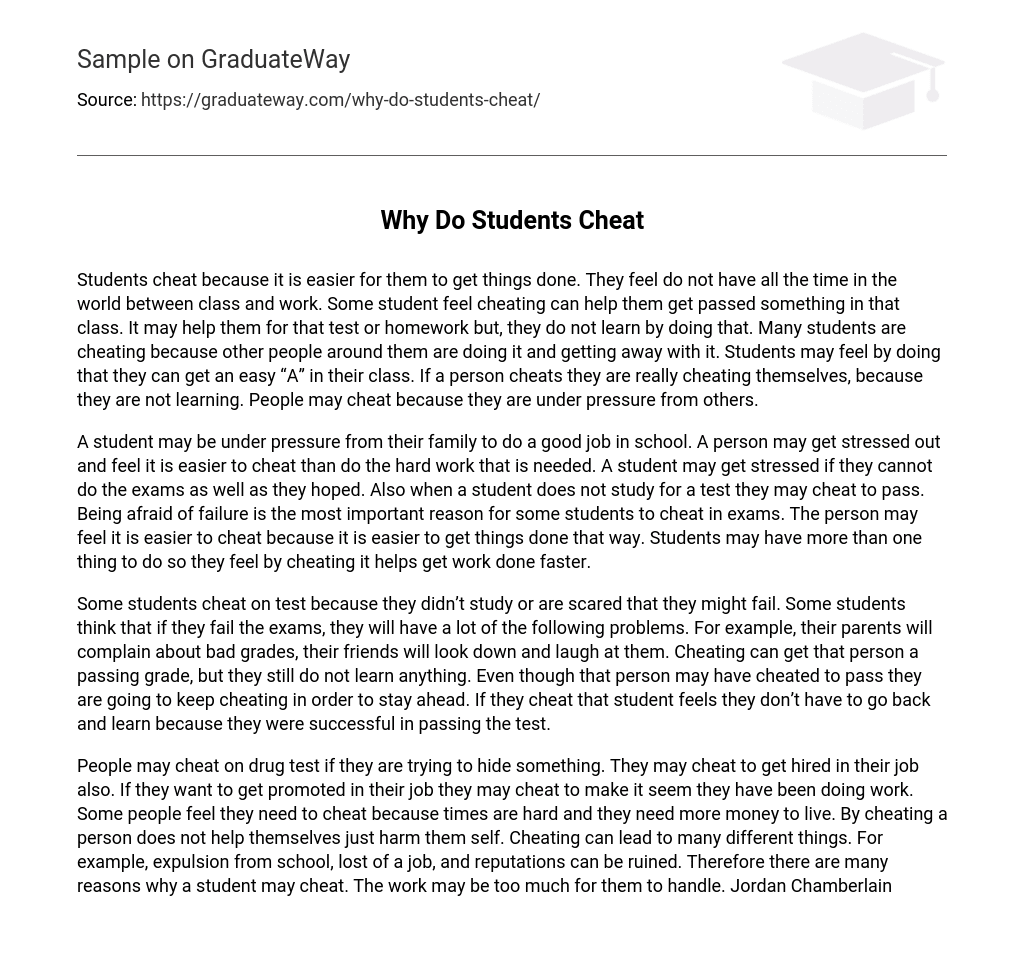Students cheat because it is convenient for them to accomplish tasks more easily. They may feel pressed for time, as they have commitments such as class and work. Some students believe that cheating can assist them in navigating their coursework. Although it may provide short-term benefits for exams or assignments, they do not truly gain knowledge by engaging in such practices. A significant factor driving cheating behavior among students is the observation of others successfully cheating without facing consequences. By resorting to cheating, students may perceive it as a pathway to obtain satisfactory grades effortlessly. However, individuals who cheat are ultimately deceiving themselves, as they fail to acquire genuine understanding. External pressures exerted by peers or other parties can also contribute to the decision to cheat.
A student may be under pressure from their family to excel in school, leading them to consider cheating as an easier way out rather than putting in the required effort. In addition, stressing over their inability to perform as well as expected in exams may push a student towards cheating. Not studying for a test and cheating to pass it can also be a result of this stress. Fear of failure is identified as the primary motive for some students to cheat. The perceived simplicity and efficiency of cheating can make it an attractive option for individuals who feel overwhelmed with multiple tasks and deadlines.
Some students cheat on tests because they are either unprepared or afraid of failing. They believe that failing exams will lead to various challenges such as complaints from their parents and ridicule from their friends. While cheating may help them pass the test, it does not contribute to their learning. Moreover, once they cheat to succeed, they are likely to continue doing so in order to stay ahead. This behavior prevents them from going back and reviewing the material as they feel successful solely based on passing the test.
Cheating can be driven by various motivations, whether it is to hide a drug addiction or lack of qualifications. Some people cheat to secure employment or advance their careers by creating a false perception of productivity. Others cheat due to financial difficulties and the need for more income. However, cheating ultimately brings more harm than good, leading to consequences like expulsion from schools, job termination, and damage to one’s reputation. As a result of the overwhelming workload they face, students may be compelled to cheat.
Jordan Chamberlain





